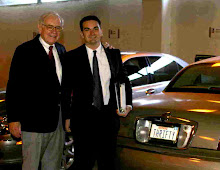I own a lot of Berkshire stock. I don’t like seeing it go down because I don’t have a lot of liquidity at the moment, otherwise I would welcome the buying opportunity. But this begs the question, is this indeed a buying opportunity ? Or is it the beginning of the demise of the greatest investment of all time?
With is decline today, Berkshire stock has just experienced its largest drawdown ever. From Jun 19, 1998 to Mar 10, 2000 (the same day the NASDAQ hit its high, by the way), BRK lost 48.9%. From December 7, 2007 to today, BRK has lost 49.33%. It is worth noting that its current low is 81% higher than its 2000 low, which equates to a 5.6% annual compounded rate of return (trough-to-trough). Not exactly Berkshire’s historical annual average.
In my opinion, Berkshire currently suffers from a tremendous lack of transparency. This may sound blasphemous, but it is not. Although Warren Buffett prides himself in holding simple, understandable businesses, Berkshire’s portfolio is anything but. The company has an insurance business that only Buffett fully understands, with mysterious macro bets that seem entirely inconsistent with the style of investing that got the company to where it is today.
Investors are rightfully very suspicious of all these derivatives, particularly since Buffett refuses to talk about them except in broad, vague terms. I’m not faulting him for this necessarily, since for many companies such refusal would be expected. But we expect Buffett to explain everything to his investors much more thoroughly than a typical CEO would. If he believes the annual report should provide investors with enough information to allow them to accurately value the company, as he has said in the past, then it might seem he is now failing in this regard.
In last year’ letter to shareholders he goes in to quite a bit of detail about what derivatives the company owns, but in the current market environment this information is stale and insufficient. For instance, he says,
We have written 54 contracts that require us to make payments if certain bonds that are included in various high-yield indices default. These contracts expire at various times from 2009 to 2013. At yearend we had received $3.2 billion in premiums on these contracts; had paid $472 million in losses; and in the worst case (though it is extremely unlikely to occur) could be required to pay an additional $4.7 billion.This is clearly a much higher level of disclosure than many companies would provide. But it almost raises more questions than it answers. $4.7 billion? Has this happened? The third quarter 10Q provides no more detail, but does indicate that a) the company wasn’t substantially hurt by the derivatives up to that point and b) that it increased the size of its derivative portfolio. (I lump both the options and credit default swaps in to this category.) The real problem is that there is no telling what has happened since September 30.
Of course there are more obvious reasons for the Berkshire’s stock’s slide. Two of Berkshires three largest common stock holdings, Wells Fargo and American Express (Coca-Cola is the third) have each been clobbered by more than 70%, costing the company at least $11billion were we to mark them to market. Ouch. Kinda makes you wonder if he (along with just about everybody else) misjudged the threat of financial contagion on Berkshire’s investments in financials, or for that matter the ability of management at these (supposedly very strong companies) to resist it.
The annual report that is due out in the next few weeks will be very interesting. We have heard the “end of Berkshire” refrain before, not coincidentally at the same time as its last trough that I mention above. So on a superficial level one might be inclined to assume it’s another chicken-little situation. But this recession is different from the tech bubble burst and I’m not counting any chickens just yet anyway. There is just too much uncertainty this time around.


